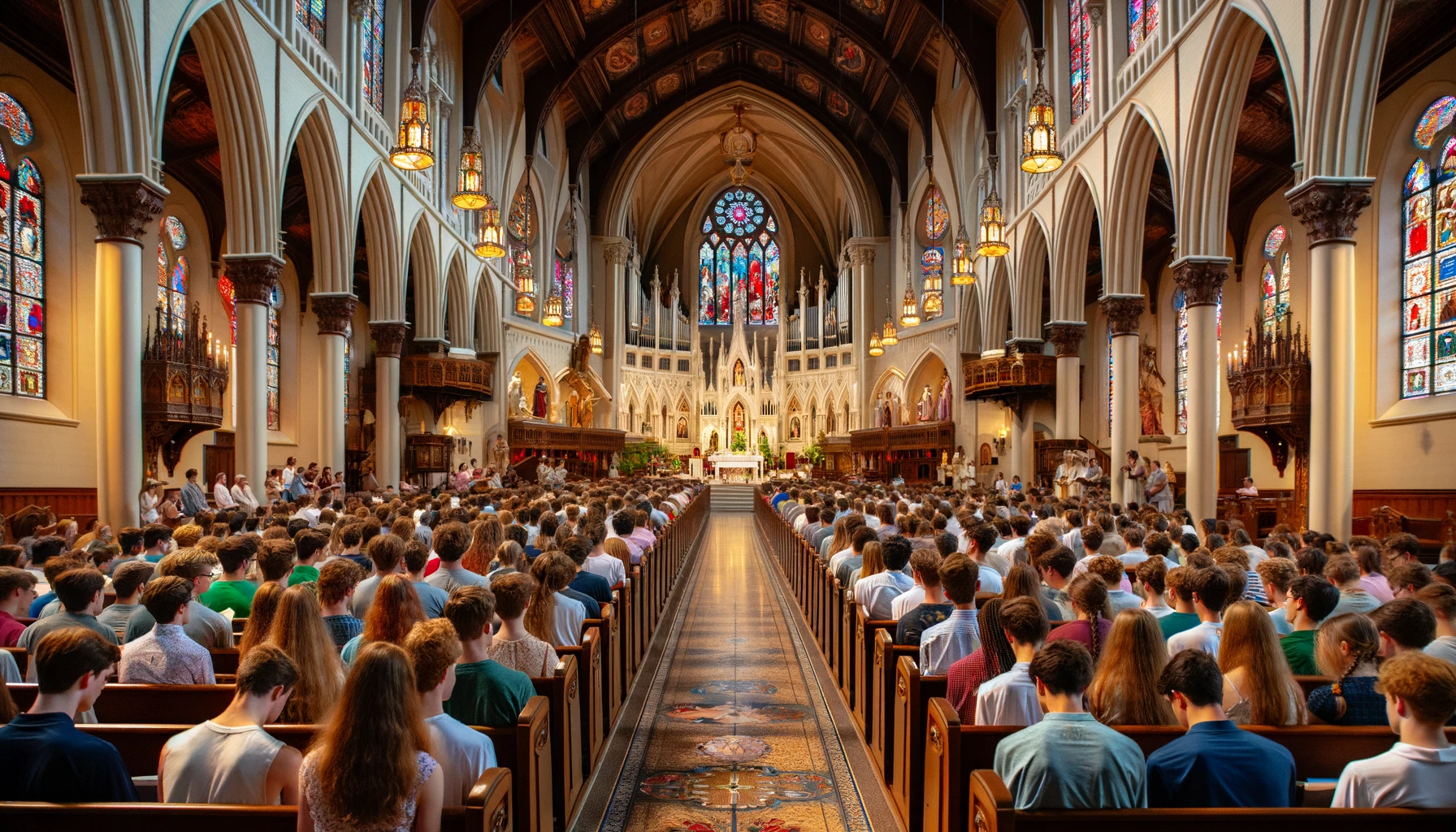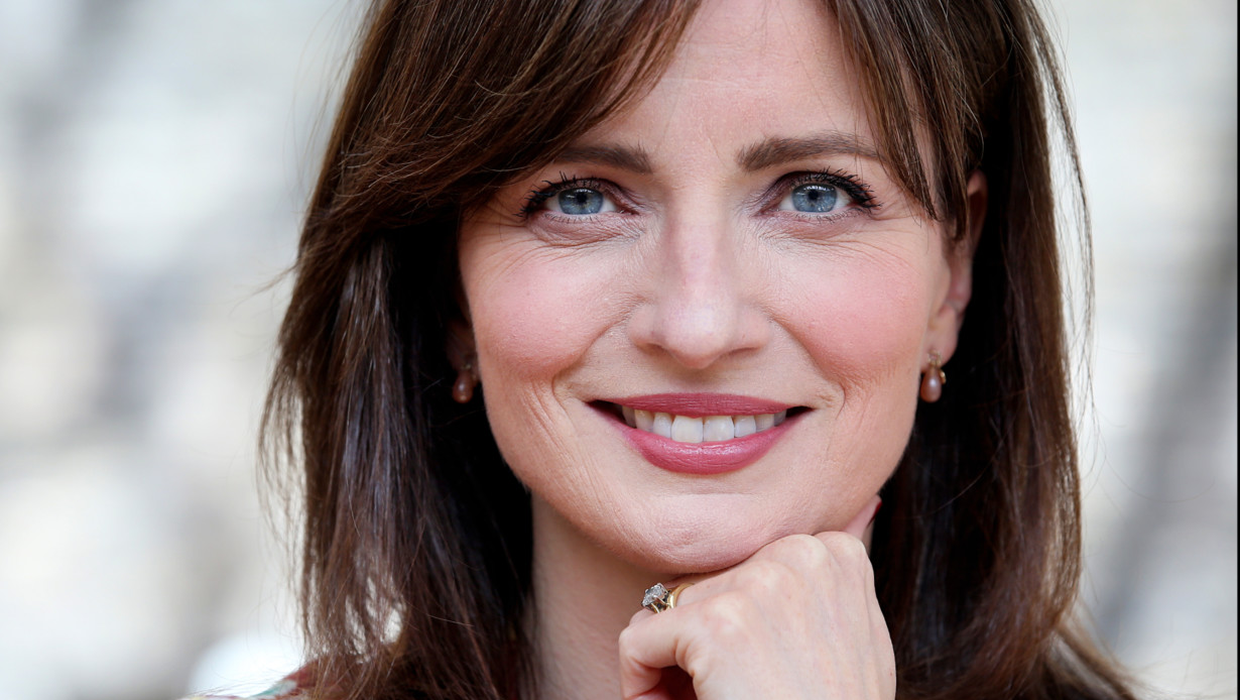
Nuns are “terrified” to speak up and defend themselves against “unfair and unbalanced” portrayals of them in film and media, according to the Association of Catholic Priests.
Fr Tony Flannery, the Redemptorist priest who founded the association, said that most nuns in Ireland today “are now too old and too fearful” to go public and challenge negative portrayals of them.
“I don’t blame them in the present climate in this country,” he told the Irish Independent.
The ACP said it had decided to speak out “in protest at the way nuns are being portrayed”.
In a statement, the group said: “Society judges the past harshly while media outlets seek to outdo each other in condemnation.
“Religious sisters are vilified; a harsh hard-faced nun, dressed in traditional habit, has become the standard media image of all nuns. It is false and unjust.”
Image shows Cameroonian women who travelled to Dublin to thank Irish nuns who taught them

More people applied to change the legal-designation of their sex in 2023 than any year since gender self-ID first came into effect a decade ago, according to figures just obtained by the Irish Independent. When enacted, it was one of the most radical laws of its kind in the world and is still more radical than most Western countries because it assigns a ‘new’ sex based purely on self-identification, even if it be entirely different from one’s biological sex.
Under the 2015 law, anyone over the age of 18 can apply for a “Gender Recognition Certificate” to change their legal identity from male to female or vice-versa.
No other type of “preferred” gender is currently possible. The change can be made without any accompanying surgical or hormonal interventions. When a certificate is granted, the person can apply for a new birth cert, passport and driving licence that reflects their ‘new sex’.
Young people aged 16 or 17 can also apply to change the legal identity of their sex, if they get a court order.
In 2023, the department received 354 applications under the Gender Recognition Act. Four of these were from people aged 16 or 17. Under 18s must gain permission from their parents to apply under the law.
This surpassed the previous record of 319 applications in 2022 and 195 in 2021.
There were 341 applications granted in 2023, including three for people under the age of 18. Gender recognition certificates granted in 2023 may have been applied for in previous years.

Priests across the country have voiced their delight with the “massive” numbers who attended Christmas Masses. Many clergy were “impressed” and “encouraged” by the turnout, with others noting it was the best they have seen in years.
Fr Andrew O’Sullivan PP of Rathgar and Rathmines in Dublin said there were “full churches” for Christmas eve and Christmas day and that there was “a wonderful atmosphere and a lot of good will. Our numbers were the best they have been in many years”.
Based in Ennis, Co. Clare, Fr Tom Ryan said: “Our numbers were exceptional at all our Masses. We celebrated 18 Masses in the parish of Ennis on Christmas Eve and Christmas day – extremely good numbers at all of them.
“It was very encouraging. I wouldn’t say numbers have recovered since Covid, but we experienced full churches and happy people so overall it was a positive experience.”
Fr Dermot Ryan, the Administrator of St Mary’s Cathedral in Kilkenny, told The Irish Catholic the cathedral was “packed to capacity” for all their Christmas Masses.

The U.S. Supreme Court has agreed to hear a case on whether US States have a right to end taxpayer funding of abortions.
If successful, the outcome could result in the cancellation of government funding of giant abortion providers like Planned Parenthood.
The specific case begun when South Carolina determined that Planned Parenthood was not qualified to receive taxpayer funding as part of its Medicaid programme. However, a federal district court intervened and forced the state to restore the funding. This was then appealed to the Supreme Court.
The effort to strip Planned Parenthood of public funding began in earnest in 2015 after undercover videos released by David Daleiden’s Center for Medical Progress showed abortion providers bragging about making money from selling or passing on the body parts of aborted babies to research companies. The dark and gruesome admissions contained in the videos shocked the world and prompted congressional hearings that discussed withholding taxpayer funds from Planned Parenthood and others.

Leading Catholic commentator, Maria Steen, has said Catholic parents have a right “to expect that their children should be entitled to express their views freely in school without being bullied, especially when those views correspond to the very ethos the school is supposed to promote.”
She made the remarks in this week’s Irish Catholic.
She cited an academic from DCU’s Anti-Bullying Centre who told an Oireachtas Committee in 2021 that students who were practising Catholics were singled out for bullying more than their non-religious peers.
She added that while bullying involves harassing, intimidating, or abusing someone, there is a subtler form which is institutional.
“The Department’s undermining of Catholic values, ethos and the practising of the faith leads to a situation in which it becomes easier to dismiss and deride Catholic children and their parents. Both the State and the Church should make provision for the education of Catholic children in accordance with their parents’ wishes and their religious beliefs,” she said.

The estimated value of the work done by a stay-at-home parent has been calculated to be €57,140, according to new research.
The analysis was carried out by pension and life insurance provider Royal London Ireland.
The study analysed the typical daily tasks and responsibilities of stay-at-home parents and researched the cost of employing someone to do these jobs, based on current wage data.
Additionally, a survey of 1,000 adults found that almost nine in ten people underestimated the monetary value of a stay-at-home parent.
The survey found that women are almost three times more likely than men to accurately value stay-at-home parenting.
According to the most recent census data for Ireland, there were 272,318 stay-at-home parents in 2022 and 90% of them were women.
“Stay-at-home parents have a diverse range of responsibilities – including childcare, household management, budgeting, emotional support, and handling children’s transportation needs – yet the full value of their work often goes unrecognised,” said Karen O’Flaherty, Senior Propositions Executive of Royal London Ireland.
An Amarach Research poll conducted on behalf of the Iona Institute last year, found that the vast majority of mothers would prefer to stay at home with their children, rather than go out to work, given the choice.

Faith leaders have called on planners to make room for churches, synagogues and mosques in the development of new communities.
Writing in the Irish Times, Imam Shamsudeen MacSeain and Fr Edmond Grace SJ say for anyone who is part of a faith community, congregational worship is “as fundamental to their wellbeing as a school or a hospital”.
However, they note that there is “no reference in the National Planning Framework to providing space for worship, as part of creating spaces that build and sustain communities”.
They add that this will be “a significant need for the various ethnic and religious groups living in Ireland today and in the years ahead”.
“This will call for fundamental change in our attitude to land and its use. After air and water, it is the most valued resource in every society”, they write.

Almost a third of Church of England congregations have “zero children” according to official figures.
The ‘Statistics for Mission 2023’ report gathered precise stats on church attendance in October 2023 and found “a significant number of churches report no children/young people worshipping with them”.
The report adds: “In 2023, 31% of churches had an October average weekly attendance of zero children aged under 16, compared to 25% of churches in 2019”.
Commenting on the report, Professor Linda Woodhead of Kings College London told The Times, “The Church of England has been in decline for decades and the main reason for this is a failure of transmission from parents to children. The loss of children is of the utmost significance in predicting further decline. A majority church has become a minority one.”

A new resource has been created to provide guidance to schools, teachers and parents about online influencers promoting traditional models of masculinity.
The guide has been created by Dr Darragh McCashin and Dr Catherine Baker from Dublin City University, alongside Dr Fiona O’Rourke.
Dr McCashin said there has been “a rise in traditional masculinity attitudes in the classroom” and, he cited reports in Australia and the UK, that this has coincided with “an uptick in misogynistic and sexist attitudes and behaviours, particularly from pre-teen boys”.
“Higher levels are being observed, and this chimes with the recent Women’s Aid report on younger men exhibiting much higher levels of traditionalist masculinity than other generations, which is something that hasn’t really been observed before.
“Normally, it’s older generations that endorse kind of very traditional views of masculinity as it relates to attitudes about women, sex, sexuality, the role of men in the home.
“All of that kind of points to the fact that the manosphere online content might be having an adverse impact on boys and men in terms of their progression to very traditionalist notions of what it is to be a man, what masculinity actually means.

The Master of the Rotunda maternity hospital has claimed ‘kindness’ should be at the heart of conducting abortions. His remark has been criticised by the Pro-Life Campaign.
In an interview with the Irish Times, Prof Sean Daly was quoted as saying he “really believe[s] that kindness is the essence of care”.
In response, the Pro Life Campaign released a statement asking if he seriously believes, “the abortion regime that operates in the Rotunda Hospital under his watch is a true and serious example of kindness and care in practice?”
“Has he any concerns at all about the soaring abortion rate in Ireland since the law changed? In his desire to put kindness at the centre of everything, has he taken the time to meet with and listen to the stories of women who chose to abort their babies at his hospital and now deeply regret their decision?”